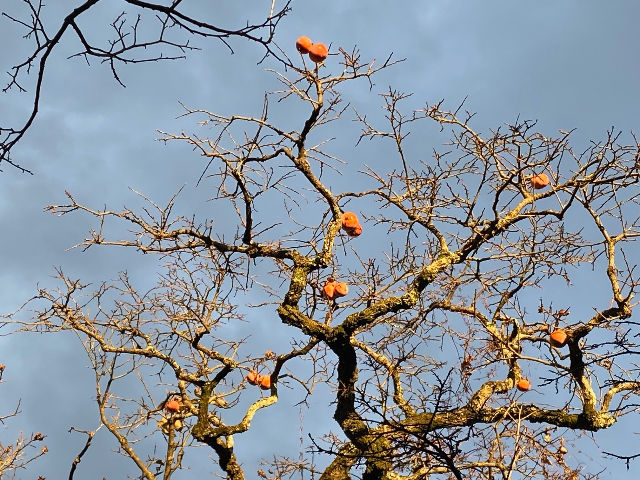WHAT DOES IT MATTER?
- Rebecca Otowa
- Jul 29, 2022
- 5 min read

(I must add a caveat to this blog – some of the conclusions I have reached may be other than what you yourself think or feel. These are my own conclusions and I have no intention of forcing them on anyone.)
This is my 50th blog post! I have really enjoyed sharing my thoughts with you, and thanks to all those who have followed me on this journey.
Recently I saw an article announcing that in Britain, octopi and some other creatures are now to be labelled “sentient”. My thoughts were, what kind of perks would these creatures get from being in such a category? And, what gives us the right to award such perks to some nonhuman creatures and not to others?
I recalled a time long ago when some friends and I were discussing pests in our homes. Several said things like, “I would never kill anything – except mosquitoes and cockroaches”
Also, (stay with me, I’m going somewhere with this) in bygone days, it was considered okay to experiment on animals, because it was believed they didn’t feel pain. And in relatively recent times, rabbits, just to take one example, have been used for experimentation in cosmetic laboratories (these creatures certainly are close to human beings on the evolutionary scale, and definitely feel pain, in fact in some experiments this is exactly what they are used for). In contrast, research now is proceeding in the direction of proving that even plants “feel pain”. Is this “pain” as human beings “feel” it? How do we know what other creatures feel? It’s easier, definitely, for us to understand that a rabbit is suffering, than to empathize with the suffering of a tree that is cut down. Why is it that if we human beings can imagine something, or if it is graspable by the five senses, it’s legitimate, but if we can’t imagine it, it isn’t?
So long ago that it seems in another lifetime (though it was really only the early 90s) I studied with a channeled entity who challenged, “Either everything matters or nothing matters. Which one are you going to focus on?”
Every generation makes some strides in this question of what matters. For my friends, the lives of butterflies and beetles are spared, but the lives of mosquitoes and cockroaches “don’t matter”. For scientists, the animals they experimented on “didn’t matter” as much as the scientific breakthroughs they were discovering. For people who make certain decisions about what they eat, whether a being feels things in a way that is apparent to humans provides the point of deciding whether to eat it or not. (Is this true? Probably not for everyone. But why else are we appalled by the idea of “factory-farmed” animal products, but not “factory-farmed” plant products?)
I am beginning to see a pattern here. These lines and cutoff points seem to have a lot to do with how people wish to be seen themselves. We must avoid judgment from our peers by saying and doing things they will agree with. We can even feel ourselves superior to them by our words or actions. “Oh, I don’t kill anything – except, of course, A or B.” “My scientific research is definitely worth the lives of a few creatures that don’t feel pain anyway.” “I don’t eat things that are sentient, but others do.” The reasons we give for drawing these lines seem a little different from our actual psychological impulses.
What really matters? In a study course I did about ten years ago, I was encouraged to think of everything as sentient, in other words, everything has a consciousness, dim (from our standpoint) though it may be. This was taught as an aspect of the saying, “The Universe is Mind”, in other words, everything in the universe has been set in motion by an energy that is mental in quality. In this view, everything matters. Entities, such as inert matter, elements, rocks, plants, sea creatures, insects, mammals, Man, are all seen as evolving, on an upward journey that takes them, always learning, always experiencing, in the direction of the spiritual. In this view, when reincarnating, human beings don’t “get reborn as a mosquito” or whatever. The process is ratcheted and nothing slips back below its present evolutionary level. As a human being, I am perhaps more evolved than the grass and rocks under my feet, but I am on the same journey as they are, and therefore I am not qualified to say they “don’t matter”.
If challenged by the channeled entity mentioned above, I would say that for me, everything, even the smallest winged insect, even the most insignificant-looking weed, matters. This morning I went down to the edge to watch the water flowing around and over the rocks in the river near my friend’s house in the mountains. Who am I to say that that water doesn’t feel itself moving, and that the stones don’t take pleasure in the feel of the cool water slipping unendingly over their wet heads? Why can’t they be “sentient”? It certainly isn’t up to me, or any other human being, to split them apart from myself by saying they are not. I don’t want to draw a line between myself and the water and stones by saying I am “sentient” and they are not. Why do such a thing? Much better to meld with them and exercise my imagination in feeling their way of being in the material world.
And how about inanimate objects – can they be “sentient”? I bought a needle a year ago that I have been using for embroidery almost every day. Perhaps that needle doesn’t have a “soul”, but it is imbued with my own existence. I and it are bound up in a common enterprise. Things that we feel connections with in our everyday lives necessarily must receive some kind of consciousness-energy from us. Perhaps by our thoughtful interaction with these objects, we are helping them to evolve to the next level. I certainly wouldn’t presume to think that it isn’t, or can’t be, so.
A children’s song I used to enjoy with my kids was about a toothbrush. “He’s a very nice toothbrush, hardworking toothbrush / so how can you possibly throw him away? … So throw away your toothpaste, try another brand / But don’t discard a friend, he just won’t understand.” I liked this song because it personified an inanimate object and made kids think about consciousnesses other than their own. Maybe a toothbrush can have a point of view!
For me to say, for example, that I don’t kill any creature around me in house or garden, except by accident, makes me feel good, but some people would say that the “merit” I acquire from this is negated by the fact that I’m not a vegetarian. No matter what we do, we are going to harm something. We are going to do things that we regret. To quote David Sedaris, “some things you can sit on, and some things you can’t.” And that changes almost daily. We can use this feeling to increase our compassion for all entities including ourselves, feeling our place (which isn’t best, nor is it worst) in the great scheme of things. Or we can use it to project our regret onto others and blame them for our imperfections.
To have a relationship with the material objects and creatures of this world necessarily entails a certain humility. Every decision about how one relates with the physical world can be one of violence and domination, or about humility and compassion, seeing ourselves (if only for a moment) as part of a seamless whole. This is what matters most – the attitude we bring to our lives and our decisions. None of us is perfect; we are all on a sliding scale of “goodness” or “acceptance” or however we see it. But the decision rests with our inner selves, not with others, either human or otherwise. We decide, moment by moment. Will our lives be based on separation or unity?
Everything matters. This is my own belief and choice. What about you?



Regarding the last paragraph: I once sat around a folding card table with three other people in an "Alexander Technique" class for singers. We were told to touch and pick up various objects on the table--pencils, mugs, small bottles--with the smallest possible amount of pressure that made it possible to manipulate them. We were to "touch them the way you would want to be touched." After ten minutes or so of this we all felt a deep calm that lasted for hours.
Tom Robbins has a playful take on this in his novel, "Skinny Legs and All." https://www.goodreads.com/book/show/9370.Skinny_Legs_and_All?from_search=true&from_srp=true&qid=qZSb8BfTYF&rank=1
Congratulations on your 50th blog post ... a deep, thought provoking post. Everything matters. Everything is.
I love your thought-provoking writing, Rebecca. This essay reminds me of one of my favorite TED talks that discusses the different perceptions and focuses of the two hemispheres of the brain. Check it out: https://www.ted.com/talks/jill_bolte_taylor_my_stroke_of_insight
Life is "all or nothing".😀